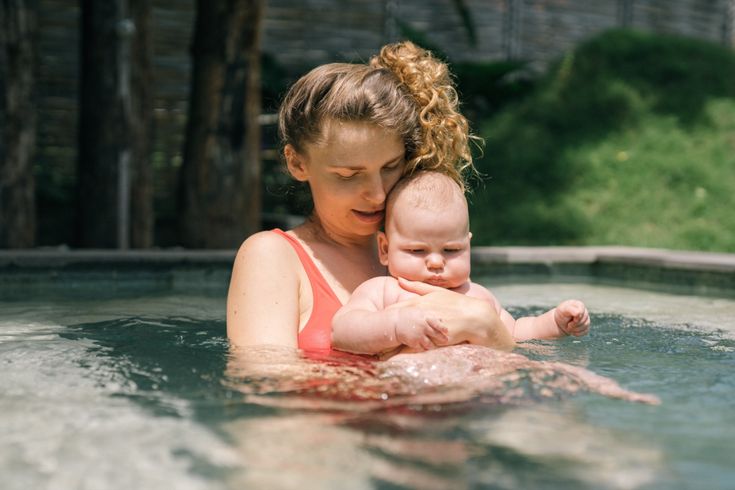In this modern age, NURTURING YOUNG MINDS has taken a new turn, with a growing emphasis on early reading.
We all want our children to be innovative and intelligent, even before they hit kindergarten, leading many to rush into making them great readers quickly.
However, let’s pause for a moment to consider that the secret to success isn’t about going really fast but about taking it easy and steady.
Contrary to popular belief, evidence suggests that early reading is not beneficial for your child; instead, it is considered detrimental.
It might lead you to wonder why.
Today, in this article, we will guide you about all the reasons, “Why early reading is bad for your child?”
So, without further ado, let’s begin!
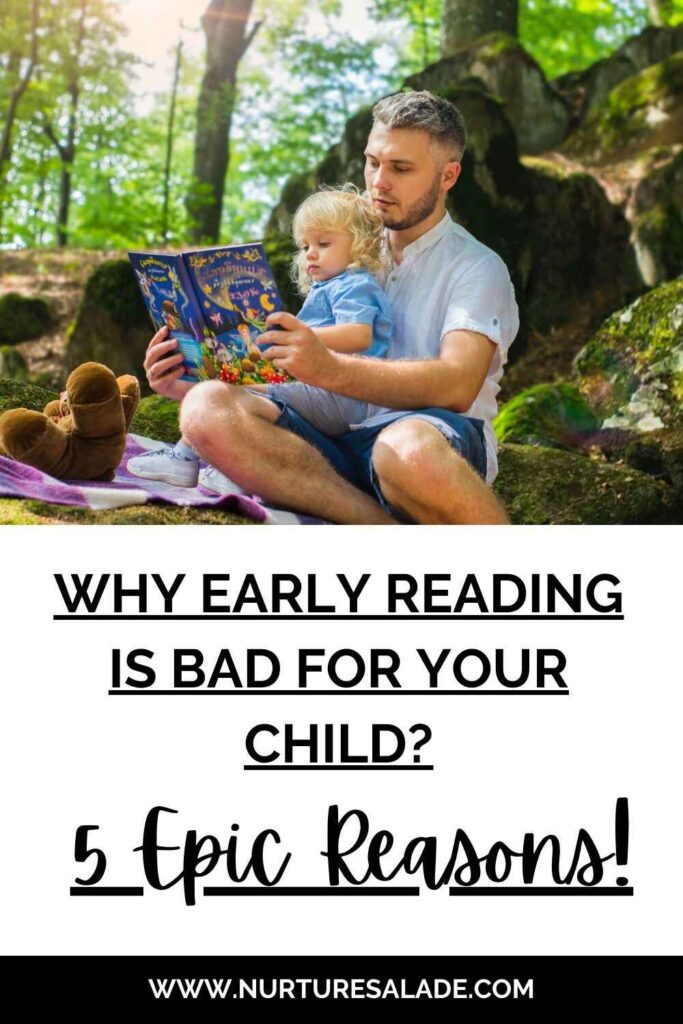

Why Early Reading Is Bad for Your Child?
Early reading is generally ENCOURAGED and can have numerous benefits for a child’s cognitive development.
However, it’s essential to approach this practice with care, as some critics argue that early reading has POTENTIAL DRAWBACKS.
Let’s discuss these concerns and explore them in detail.
Early Reading Puts Stress and Pressure on Your Child
When we’re so focused on turning children into AMAZING READERS, we often forget about their feelings.
Picture a little brain trying to figure out letters before it’s ready. What happens?
Stress and pressure show up, right?
Making children read too early can add these feelings to their early years.
Research from all over the world tells us a serious story.
Psychologists who study kids found that if we push them to read too soon, they might feel more anxious, frustrated, and unsure of themselves.
Stories from REAL-LIFE match this research, showing how kids can feel awkward trying to read when they really just want to play – it’s best only when it’s the right time for them.


Early Reading Leads to Limited Social Interactions
If your child is totally absorbed in a book, discovering new worlds on each page, but surrounded by a sense of being alone, how do you feel?
Reading is SUPER EXCITING, but if you only focus on books too much, it might take away from the fun of SHARING EXPERIENCES with others.
When all your early years are spent figuring out words, the beautiful picture of hanging out with friends might be missing.
- Experts who know a lot about how kids grow up worry about this.
- They say that being good at talking to people comes from doing lots of different things, not just reading.
- Playing with friends, being in a group, and exploring are like building blocks for growing up in a well-rounded way.
Books are AWESOME, but they shouldn’t be like a magic spell that makes you quiet and takes away the laughter and fun of being a child.
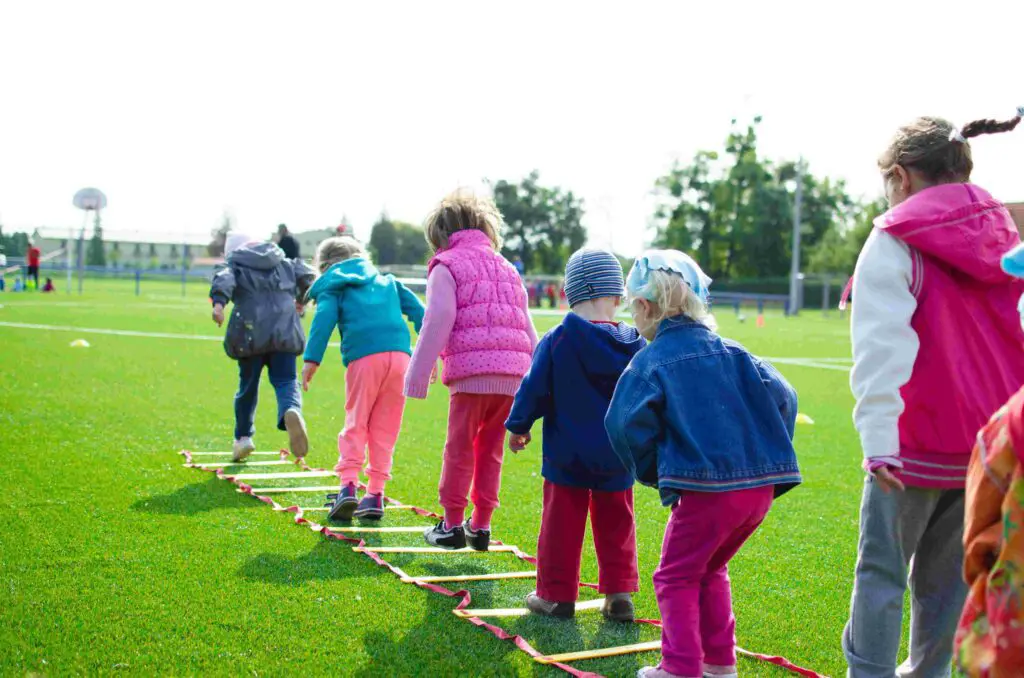

Reading Too Early Can Reduce Your Child’s Interest in Reading
Getting into reading when you’re young can either turn into a lifelong love for books or fizzle out.
Reading too much, like eating too many sweets, can make it less fun.
A child becomes tired from reading too many words because the joy of stories slowly turns into a boring routine.
Therefore, it’s essential to keep the EXCITEMENT ALIVE – a delicate balance that needs attention.
To prevent kids from getting bored with reading, mixing things up.
- Switching between reading and doing fun activities can bring back the excitement.
- Also, tying stories to what a child likes – whether it’s dinosaurs or magic – can make it more interesting.
- Letting the child tell the story themselves adds a new and lively twist to the experience.
If you add these experiences with reading, reading will be fun, and your child will love it longer – that’s what you want, right?
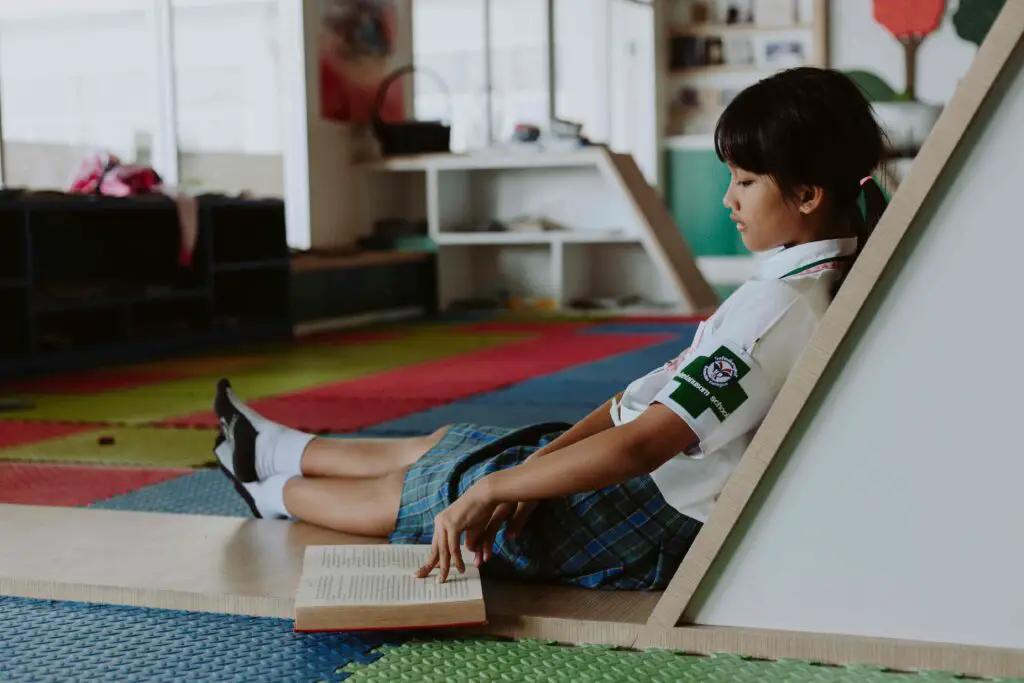

Reading Can Missed Opportunities for Hands-On Learning
Sometimes, in trying to be really good at school from the start, we forget about the fun of actually doing things.
Picture a world where we figure out math problems but never mix paint colors or memorize facts but never get to touch and shape clay.
Horrible, isn’t it?
Learning isn’t just about LETTERS AND NUMBERS; it’s about experiencing things and really FEELING THEM.
Playing and learning go hand in hand.
Studies show that when kids actively play, build, and experiment, they learn to think and solve problems better.
Ignoring playtime for the sake of rushing into reading and writing takes away their chance to be creative.
Reading Readiness Differs Among Children
Think of a garden where flowers bloom at different times.
Just like all the flowers bloom in their UNIQUE WAY AND TIME, children also learn to read in their own way.
This idea is called “reading readiness,” and it recognizes that becoming a reader is different for each child.
Some kids quickly learn, like marching ahead, while others take it slow, like strolling.
But how do you know whether the child is ready to read or not?
There are signs that show a child is ready to read.
For example:
A child who likes to scribble, enjoys rhymes or is interested in words might be getting ready to read.
Also, being able to RECOGNIZE SOUNDS and connect them to letters is an essential step toward reading.
Parents play a role in this journey.
- Instead of rushing, you should be attentive guides, helping the child along.
- It’s important to understand that each child has their own timeline for readiness.
- Helping a child grow means realizing that every step, from the first word to full sentences, is a special moment.
Let children explore and learn at their own pace!
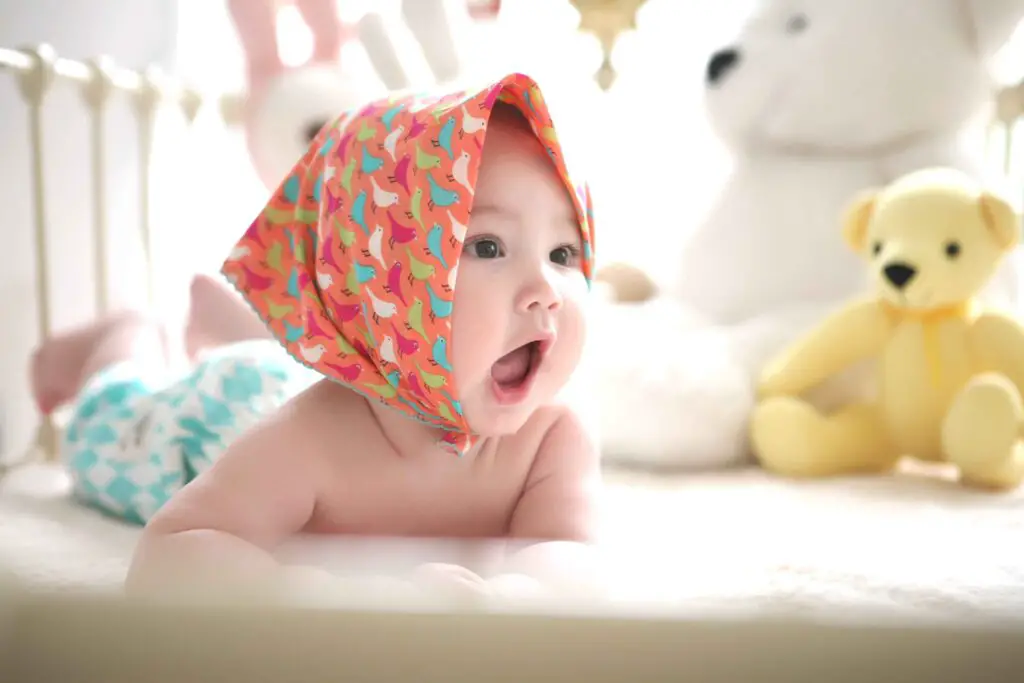

FAQs
Can You Teach a 2-Year-Old to Read?
Though every child is different, most toddlers will be able to read by the time they are two years old.
Remember, teaching a 2-year-old to read is challenging because they’re still learning basic skills like talking and moving.
At this age, it’s more important to play, talk, and read together for fun. Focus on building a love for books and language. Reading will come later as they grow and develop.
What Is Hyperlexia?
Hyperlexia is when a child learns to read at a very early age, often before talking.
They might read well but struggle with understanding spoken language or social skills. It’s like having a superpower in reading but finding other communication aspects tricky.
How can you deal with a child having hyperlexia?
Specialized support and understanding help children with hyperlexia manage both spoken and written language development.
What Are The Problems with Early Reading?
Early reading can sometimes cause issues as young minds may miss out on vital skills like talking and playing.
Pushing too soon might lead to frustration and less enjoyment in learning.
It’s like trying to run before learning to walk.
Balancing different skills through play and exploration sets a strong foundation for lifelong learning.
That’s all for today. Now, it’s time to move toward the conclusion.
Conclusion
So, why early reading is bad for your child?
It isn’t if you maintain the balance between fun, playing, reading, and experimenting.
Putting too much pressure on young minds can lead to stress and make learning less enjoyable.
Also, spending too much time with books might take away the joy of playing and sharing experiences with friends.
Every child is unique, and they learn to read at their own pace.
So, instead of rushing, let’s be patient – help your child explore and learn at a pace that’s right for them.
Balancing play, exploration, and reading sets a strong foundation for a love of learning that lasts a lifetime.


